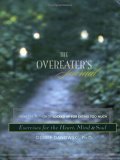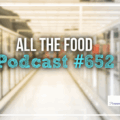In yesterday’s post I mentioned that today I would share a useful tool with you that you can use to discover why you overeat. This is all about becoming conscious of the reasons that you overeat and keep yourself overweight. While I don’t expect this one post to solve all of your issues, it will get you started on the track of taking responsibility for your actions.
So what is this tool? Is this something new and different that I’ve come up with? No, sorry to disappoint, but I’ll bet that you’ve heard this before: it’s journaling. It might sound simple, journaling with pen and paper to delve into your own emotions and feelings around food and your weight, however it is a powerful, and you might say essential key to losing weight and keeping it off for good. You will be your own therapist, not that therapy isn’t a very useful tool (and often necessary for deep seated emotional problems), however journaling is something that you can start today to get on your way to changing your life and your relationship with food.
The tool that I have for you today will give your journaling a direction and is especially helpful if you haven’t done much journaling before. It is a workbook by Debbie Danowski, Ph.D. titled, Overeater’s Journal: Exercises for the Heart, Mind and Soul. Debbie actually used to weigh 328 pounds. She went into treatment for food addiction at a treatment center and the Overeater’s Journal is one book that came out of her recovery. Every day she was required to keep a journal and write down her experiences with food, her anxieties, worries, feelings about herself and her body, and while she didn’t look forward to journaling, she credits it as one of the key elements in her successful recovery, subsequent weight loss, and long-term weight management.
Essentially, this book is a workbook with exercises in it to give you topics to journal about. It poses questions that you need to ask yourself and then honestly write about (for your eyes only). The topics covered are the same types of subjects that I write about here at Fearless Fat Loss, which is another reason that I am recommending this workbook to you (because I believe in them). These topics are all a part of the puzzle of overeating, food addiction, and overweight and include your emotions, how you use addictive substances (refined sugars, white flour, unhealthy fats), your outlook on life, and your spirituality. In a nutshell, you work on journaling about your emotional, physical, and spiritual self.
In fact, this brings up a point that I want to note, that I have been remiss in writing about the importance of your spiritual relationship (not religion) when it comes to truly healing the relationship you have with food in your life. Your spiritual self cannot be ignored, especially since many who overeat are trying to fill a void in themselves that food can never fill (more about this topic in future posts 😉 ).
I truly feel that this workbook can be a great tool for you on the path to healing your emotional eating, food abuse, and food addictions, all of which lead to the symptom of overweight. Remember, as I wrote yesterday, if you want to heal your issues with food and your overweight and get off the diet roller coaster, you must heal the cause, not the symptom (your overweight).
Now, if you are asking whether or not I still believe in the program the Six Week Body Makeover that I have recommended to you in several posts, I certainly do. However, even that program might not give you lasting results if you are an emotional eater and never address your reasons for using food in the first place. The 6WBMO is a solution for the physical aspect of food addiction (although it’s marketed for weight loss) since it gets you off of all of the addictive substances (refined sugar, white flour, unhealthy fats, dairy) and gives you a structure to follow.
You just have to remember that there is so much more to lifelong weight maintenance than only diet and exercise, which is a solution for the physical symptom your food issues have manifested. You want to bring all of the pieces of the puzzle together (emotional, physical, spiritual) and journaling is a key component in helping you learn all about what is motivating you to overeat.
Emotional eating, food addiction, unhealthy relationships with food, your spirituality, all are covered in The Overeater’s Journal. There is one trick to this – you have to take action and do it! 😉 I know how easy it is to get a book and flip through it and then not follow through with the exercises, I’ve done this before, too. But if you truly want to heal and get healthy, you must take the action and do the exercises. Remember, you’re worth the work.
Please note: Debbie Danowski wrote 2 other excellent books that I haven’t written about yet, but I’ll let you know in advance that I recommend them. 😉






Thats extremely interesting. To tell you the truth I have never heard that way of thinking before. It brings up a point though. Why is it that people over eat? It’s their way of channeling their misery. Just as the drug addict channels his misery onto drugs so does the over eater. It’s just more socially acceptable. You know what there trying to do there trying to fill up that emptiness inside with food. but they will never be satisfied no matter how much they eat. People just really need to learn to control themselves.
thank you I haven’t heard of weight loss in that way before. I’ll tell my wife about it. 😀
Hi Jagad,
Thanks for your comments; I’m glad that I gave you a deeper look into motives for overeating. I have to say though, it’s not just about people needing to “control themselves”. There are many different aspects to the cause of overeating which can include emotions, food addiction, habit, low self-esteem, depression over becoming overweight, negative unconscious beliefs about oneself and life, and that is naming just a few. Each of these affects a person’s motivation. If it were as simple as willpower and control, then no one would be overweight. 😉
Additionally, if you delve further into the topic of recovery programs, you learn that you must accept that you don’t have control over food, and that many who do have an unhealthy relationship with food are trying to exert control in their life by using food.
Overweight is not such an easily fixed issue as many people think (just diet and exercise), and I hope to help raise awareness of this. Like you said, you weren’t aware of this before, so I’m very glad that you gave me your feedback and shared that you learned something new by reading my article. 🙂